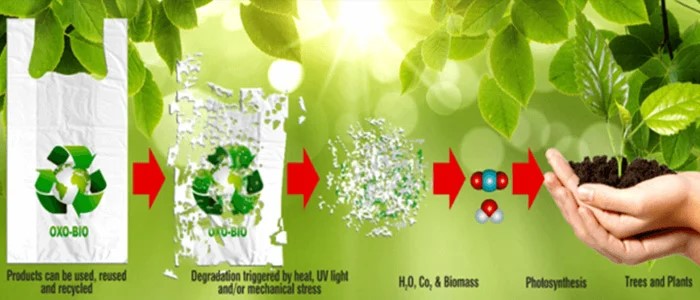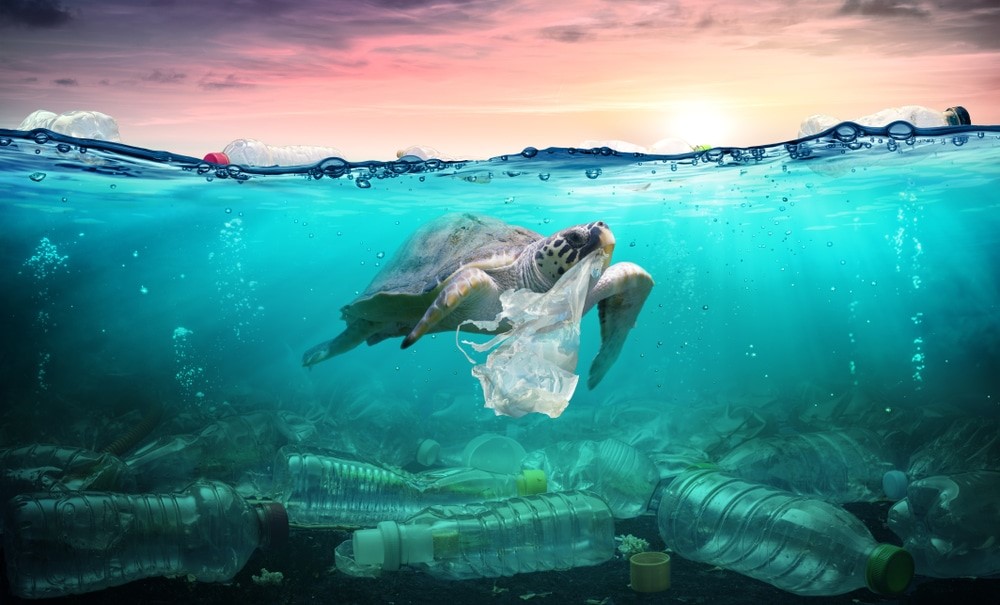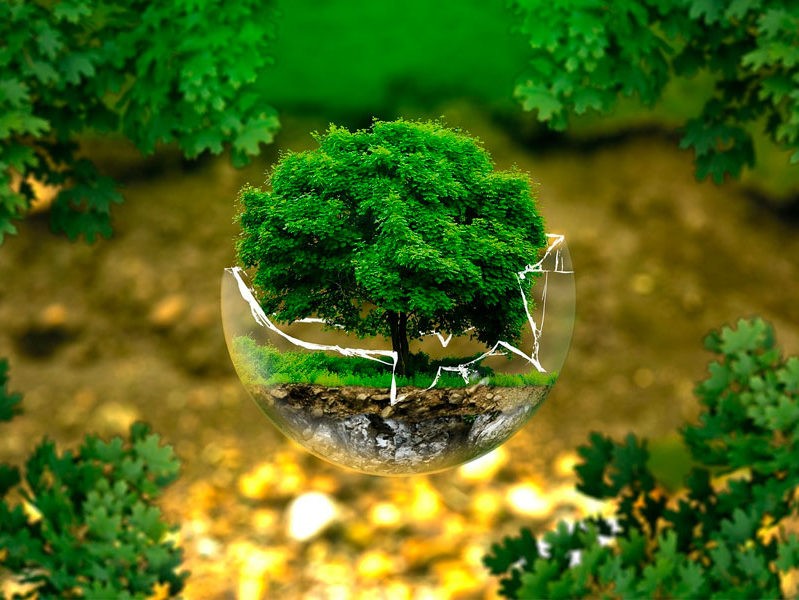Future Outlook and Conclusion
Biodegradable plant-based plastics represent a promising step towards reducing plastic pollution and promoting sustainability. However, a comprehensive approach is necessary to address the challenges and limitations they currently face. Further research and development efforts are required to improve their performance, scalability, and recyclability while ensuring they do not negatively impact food security or compete with other essential resources.

Figure 1.Biodegradable Plant-Based Plastics Future Outlook
Figure 1 shows Bioplastics encompass a broader category of plastics that can be bio-based, biodegradable, or both. The term refers to plastics made from natural materials like corn, sugarcane, tapioca, or other forms of biomass. It includes petroleum-based plastics that are degradable, plant-based plastics that may or may not be biodegradable, and hybrids containing both plant-based and petroleum-based materials. In essence, bioplastics are derived from biomass and can exhibit varying degrees of biodegradability.[1]
Future Outlook:
The future outlook for biodegradable plant-based plastics appears promising as the world seeks more sustainable solutions to address plastic pollution and environmental concerns. The demand for eco-friendly alternatives is growing, driven by increased awareness of the negative impacts of traditional plastics on the environment. Several factors contribute to the positive
Future outlook for biodegradable plant-based plastics:
Advancements in Technology: Ongoing research and technological advancements are continuously improving the performance, durability, and cost-effectiveness of biodegradable plastics. This will expand their applications and make them more competitive with traditional plastics.
Scaling Up Production: As demand increases, the production of biodegradable plant-based plastics is likely to scale up, resulting in higher availability and cost-competitiveness.
Circular Economy Initiatives: The transition towards a circular economy, where plastics are designed for reuse and recycling, will further drive the adoption of biodegradable plastics and reduce plastic pollution.
Legislative Support: Governments and regulatory bodies worldwide are implementing policies and regulations to curb plastic pollution and promote the use of sustainable materials, including biodegradable plant-based plastics.
Consumer Awareness and Demand: With growing environmental consciousness, consumers are increasingly seeking eco-friendly alternatives, putting pressure on industries to adopt more sustainable practices.
Conclusion:
Biodegradable plant-based plastics offer a promising solution to the pressing issue of plastic pollution and its adverse effects on the environment. As a renewable and biodegradable alternative to traditional plastics, they have the potential to significantly reduce the environmental impact of plastic waste.
However, there are still challenges to overcome, such as scalability, performance, and proper waste management. Collaboration between governments, industries, and consumers is essential to overcome these challenges and fully realize the potential of biodegradable plant-based plastics.
Moving forward, it is crucial to continue investing in research and innovation to improve the efficiency and properties of biodegradable plastics. Simultaneously, promoting responsible consumption and waste management practices will be critical to ensure the success of biodegradable plant-based plastics in curbing plastic pollution and creating a more sustainable future for our planet.
References:
- https://www.science.org.au/curious/earth-environment/future-plastics
Cite this article:
Janani R (2023),Biodegradable Plant-Based Plastics: Reducing Plastic Pollution, Anatechmaz,pp 5





